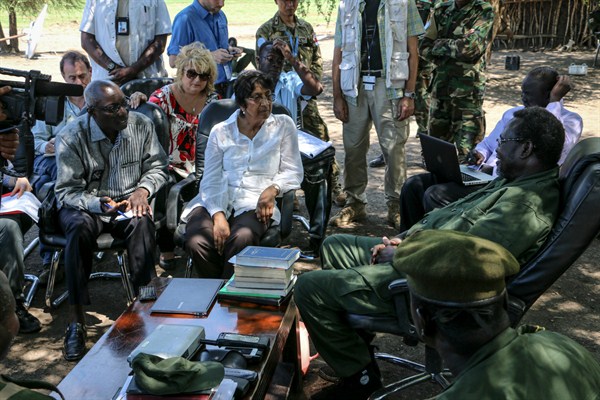“The System Worked.” That is the title of a new book by Daniel W. Drezner reviewing the role of institutions such as the International Monetary Fund and World Trade Organization in the global financial crisis. Although the world economy tanked in 2008, Drezner argues, multilateral organizations helped save it from collapse.
It is unlikely that anyone will write a book about the current wars in the Middle East and Ukraine with a similar title. A pithy summary of the United Nations’ rifts over Syria or NATO’s inability to halt Russia from seizing Crimea could be “the system flopped.” While the U.N. Security Council passed a resolution last week targeting the Islamic State, initially known as the Islamic State of Iraq and Syria (ISIS), it was a belated response to a threat that has been all too clear for months.
The U.N. is struggling to make its presence felt elsewhere. Also last week, Security Council ambassadors emerged from a visit to South Sudan “annoyed and angry,” according to the British representative, after “rather disappointing” meetings with its leaders. Such understatement belied the situation on the ground. Eight months after the country fell into chaos, U.N. troops are still protecting nearly 100,000 South Sudanese civilians on their bases. Famine is looming. But the U.N., the U.S. and South Sudan’s neighbors have all failed to engineer a lasting peace deal.

